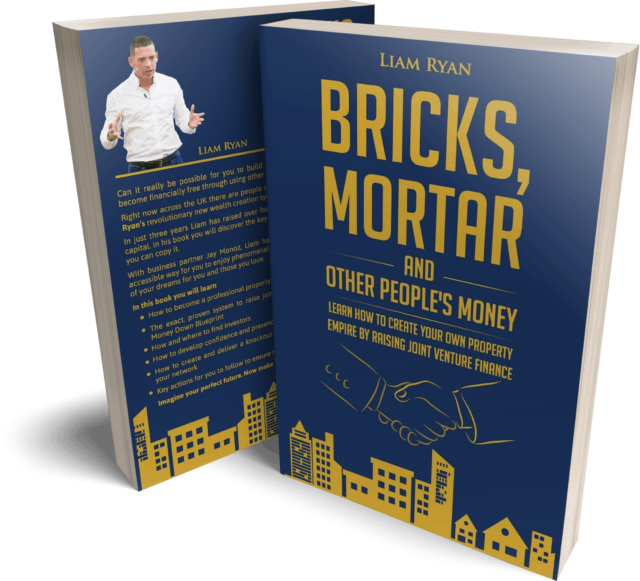How Recent Government Policies Affect The UK Property Investment Market

Whether you are a budding property investor or a more experienced pro, ever-changing government policies can make the world of property investment tricky to navigate. The impacts of recently passed and upcoming changes in policies that affect housing, property taxes, building regulations and more all have a significant impact on investment choices. Join me, Liam J Ryan, as I look into the implications of government policy changes and how they can affect property investment in 2024 and 2025.
Table of Contents
ToggleGovernment Policies and Reforms
Key Policies in 2024
- The Spring Budget of 2024 introduced a reduction in Capital Gains Tax (CGT) from 28% to 24%. This means that property investors selling a house would have to pay less in tax.
- Stamp duty relief has been scrapped for investors who buy multiple properties in a single transaction or linked transactions. Without this relief, investors now face higher upfront costs, making bulk purchases less attractive and potentially reducing the number of large-scale investments.
- The Leasehold and Freehold Reform Bill was rushed through Parliament and has passed into law, so standard leases will be extended to 990 years and ground rent reduced to a nominal amount known as peppercorn rent.
- The Renters Reform Bill would have introduced more tenants’ rights such as banning landlords from evicting tenants without reason. This bill has now been dropped following the announcement of a general election in July, so it is unlikely to pass into law any time soon.
- Biodiversity Net Gain is now mandatory for all new development sites in the UK as of April 2024, meaning that there must be a net gain of at least 10% in biodiversity following the development of an area. This is a new law so the full effects remain to be seen. It is likely to affect property development planning applications and could increase upfront costs, but properties that incorporate green spaces and enhance local biodiversity are more attractive to buyers and tenants, potentially increasing property values and rental yields.
Policy Changes in 2025
- Stamp Duty Land Tax (SDLT) adjustments will revert to their former tax threshold of £125,000 on March 31st 2025, so any properties sold for above this amount will be subject to Stamp Duty.
- Tax relief for holiday lets scrapped – from April 6th, 2025, the government plans to abolish the favourable tax treatment for Furnished Holiday Lettings (FHLs). Currently, mortgage interest on FHLs can be deducted from rental income, but from April 2025, this relief will change to a 20% tax credit. This means that higher-rate (40%) and additional-rate (45%) taxpayers will see a reduction in their tax relief.
Upcoming General Election:
The general election on 4th July 2024 will bring potential shifts in policies depending on the winning party. If the Conservatives remain in power, they will likely continue prioritising tax reductions and private investments, whereas if Labour wins the election, their promises include delivering more infrastructure and building more affordable homes. Other parties such as the Liberal Democrats and Green Party have vowed to prioritise sustainability and build more social housing. The Conservatives approach could lead to larger profit margins, but all parties promise more housing, so there would be more investment opportunities overall.
Mortgage rates could also change depending on the prevailing government and their fiscal policies. Austerity measures as we have seen in recent years could result in lower interest rates, whereas more expansionary policies could lead to higher interest rates, making mortgages more expensive and reducing property demand.
The election and potential upheaval around a new political party replacing the incumbent one could cause some market instability, especially in the event of a weak victory or a hung parliament. A strong and decisive victory would result in minimal instability which would soon pass.
The Impact of Government Policies on Property Investment in 2024 and 2025
Property Prices 2024
House prices continue to rise despite a slight dip in late 2023 to early 2024. Policies like the CGT reduction and Stamp Duty relief have led to more property sales, encouraging a buoyant market with more investors.
Property Prices 2025
Savills predicts that the average house price will be over £300,000 for the first time, although this could be subject to change if a new government follows through on promises to build more housing. The interest rate is predicted to fall in 2025, as recommended by the IMF, leading to increased purchasing power for consumers and investors despite the continued rise in house prices.
Rental Yields 2024
Rental values have been increasing in 2024, but are the profits being swallowed by tighter housing regulations? The rental market is still strong due to low housing supply and the cost of living crisis, causing an increased need for rental housing. Landlords with properties in buy-to-let investment hotspots such as Nottingham and Manchester continue to make over 5% in net rental yields.
Rental Yields 2025
Some predict that tighter regulations on housing and landlords could result in some property investors moving away from letting properties, especially those who only have a few properties. Larger investors with a large number of properties are likely to control more of the market as they are big enough to absorb extra costs and responsibilities. If more properties are built and the interest rate drops as predicted, more people could be in a position to buy homes rather than rent them, which could result in lower rental yields.
Investment Strategies 2024
The decrease in CGT from 28% to 24% incentivised property investors to consider selling properties to take advantage of lower tax rates on their gains. This policy encourages more frequent property transactions and short-term investment strategies focused on capital gains. The extension of standard leases and reduction in ground rent thanks to the Leasehold and Freehold Reform Bill have made leasehold properties more attractive for long-term investments due to reduced ongoing costs and legal complexities.
Investment Strategies 2025
As SDLT adjustments revert to a lower threshold of £125,000, there may be a rush in property transactions before March 31st, 2025, followed by a potential slowdown afterwards. Investors might expedite purchases to avoid higher stamp duty costs, influencing short-term investment decisions. The abolishment of tax relief for Furnished Holiday Lettings (FHLs) changes the financial landscape for holiday rental investments. With reduced tax benefits, investors in this sector may reconsider their portfolios or adjust rental pricing strategies to mitigate the impact on profitability.
Market Analysis and Outlook for 2024 and 2025
Market Activity
Market activity in 2024 was robust, driven by the favourable stamp duty adjustments and economic recovery post-pandemic.
Anticipated policy changes might create periods of heightened activity followed by lulls as the market adjusts. Overall, a balanced but cautious growth is expected in 2025.
Regional Variations
Urban vs. Rural: Urban areas, particularly London and Manchester, continue to attract significant investment. However, policy impacts such as increased stamp duty on higher-value properties may temper growth in these regions.
Affordable Housing: Regions with more affordable housing options, such as parts of the Midlands and the North, are likely to see sustained growth due to increased first-time buyer activity and government incentives.
Long-Term Trends
- Sustainability: The focus on energy efficiency will likely continue, making sustainable properties more valuable in late 2024 and 2025.
- Technology Integration: Smart home technology and digital property management solutions will become increasingly important in 2025 and beyond.
- Demographic Shifts: A larger ageing population and changes in living preferences will shape demand in 2025 and the future, with more interest in adaptable living spaces and community-oriented developments.
How to Stay Informed
Keep up with political developments, property proposals and the outcome of the general election to help you anticipate upcoming changes and make informed decisions about your investments. You could consider diversifying your portfolio to mitigate any risks to a particular property type caused by policy changes. Make sure you have a contingency fund to cover yourself in the event of any dramatic upheavals and potential market volatility.
For all the latest developments, news and insider info in the property investment world, join me and other property experts at an Assets for Life property event! Find out more and sign up here.
You May Also Be Interested In...

A Guide to Selling Your Buy-To-Let Property
Thinking of selling your buy-to-let? Learn how to time the market, manage tax and maximise

Planning Permission Loopholes You Should Know About
Discover UK planning permission loopholes, permitted development rights and when you can extend, convert or
Featured Property Investment Events & Courses
The Property Deal Packaging Summit
The Property Millionaire Bootcamp
The Serviced Accommodation Bootcamp






